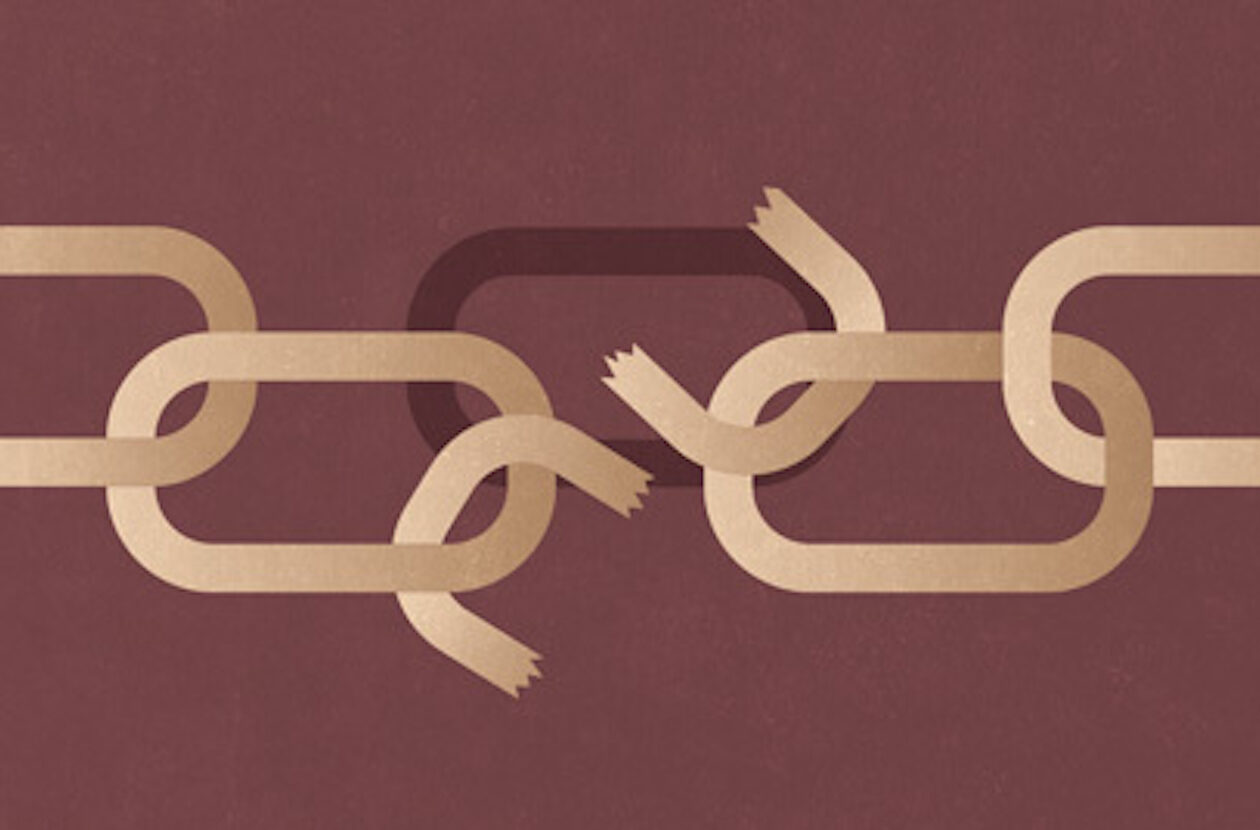
In his book, The Great Divorce, the Anglican writer C.S. Lewis, described as a teacher of Catholic truth, defines Hell as a great, huge, dark place where there is no contact between people. He says that Hell started out small, but people quarreled with one another and moved away from each other. Then there was another quarrel and the people moved farther away. And so on, and so on, until finally no one could even see anyone else. And there they lived, alone in the darkness. That’s what Jesus wants us to avoid.
There is a romanticized sense of righteousness about revenge, the feeling of a debt repaid, and a wrong made right. We love stories about someone enacting revenge on a cheating spouse or the boss who wrongly fired them. Sports hypes up the revenge game, when a star athlete travels back to play the team that cut them. We lift up revenge as a shining example of justice, and the people who forgive and turn the other cheek are often ignored or seen as weak or foolish. Yet, these are precisely the people Jesus wants us to be.
Jesus never asked for revenge or a chance to settle the score as he hung dying on the cross. Rather, he cried “Father forgive them, they know not what they do.” Forgive them. It’s a thought that doesn’t come naturally, and something we would rather not follow or even think about. Yet, it is what Jesus calls us to do.
Forgiveness is righteous, and it takes far more strength to let go, than to get even. Your boss fired you? Pray for him and his company on the way out. You found your partner cheating on you? Pray that they find happiness and that this new person fulfills them.
It is ok to be hurt when someone wrongs you, but the only way you heal is if you let go. That takes forgiveness, which is why Jesus calls us to forgive, not just seven times, but as many as 70 times 7. Forgiveness and justice should characterize the Christian community. If it does, others will recognize something unique about the church and might even recognize Christ alive and active in our midst doing what isn’t “do-able” without him.
From my experience in prison ministry forgiveness is the aspect of Jesus’ ministry that we humans have the most trouble following. It is part of our human nature; when someone wrongs us, we want to get them back, and make them feel how they made us feel.
In most churches today – and I don’t think St. Dominic’s is any different than any other church – what typically happens when people disagree with each other is that the one who is upset says nothing to the person who has caused the upset. But the angry person does talk to his or her friends and supporters and begins to gather sympathetic ears for a message that the other person has done the injured party wrong. For now, the person who is now being vilified has no idea that he or she has done anything to anyone. Then when the problem ultimately comes to a head, the original issue has either been completely forgotten or has morphed into something entirely different than the slight it started as. Meanwhile, the person who started it all with some relatively minor act has become a major villain, – simply from the power of bad feelings, innuendo and accusations, simmering over time. This is precisely what Jesus talks about in today’s gospel.
Jesus lays out how these things are to be handled by a Christian community. And quite simply, His prescription is to talk about things openly, honestly and directly, person-to-person. Jesus wanted people who had been hurt to talk directly to the one who hurt them and to lay things out in an honest fashion, in hopes of having the issues worked out. Jesus doesn’t say, “Ambush them.” And neither does He say, “Meet at high noon, in the middle of Rebecca Street and shoot it out. Let the best person win.” Instead, He says that we should speak honestly and directly with each other, not in anger, but also not hiding the hurt that has been done. Note that He does not suggest that one person should be the winner and one the loser. No … what He wants from this direct communication is reconciliation—Restorative Justice is what it is called in the criminal justice system—-Both parties getting back, as much as is possible, to a place of shared care and concern – of forgiveness and understanding.
Jesus wants all people to be reconciled to one another, not so that one is right and one is wrong, but that both can come together and put their differences behind them. Or, as St. Paul told the Romans, “Let’s therefore throw off the works of darkness, and let’s put on the armor of light. Let us walk properly, as in the day; …not in strife and jealousy.” But Jesus doesn’t give His instructions so that the person who was sinned against gets a free pass. What He really wants is for the person who has been sinned against to engage in forgiveness, so that that person can get his or her life back in order, no longer bound by anger and resentment that can extinguish the flame of Christian love.
You see, no matter how much harm may come to the person who has committed a wrong and is then ambushed by people because of what he has done, it is the person who was originally wronged, the one against whom a sin was committed, who suffers irreparable harm if there is no forgiveness. The one who asks for forgiveness goes on, once the forgiveness is requested. That person has done what he or she can do by asking forgiveness. It is the person who refuses to forgive who continues to suffer.
Some of you might have heard of a country song entitled, “Anyway.” It reminds us of how we are to treat each other as Christians, and it also sums up how and why Jesus wants us to resolve conflicts. I’d like to share some of its lyrics as I close my message. (* Martina McBride video*)
People are illogical, unreasonable and self-centered, Love them anyway.
If you are good, people will accuse you of ulterior motives, Do good anyway.
Honesty and frankness will make you vulnerable, Be honest and frank anyway.
People really need help, but may attack you if you help them, Help them anyway.
In the final analysis, it’s between you and God, It was never between you and them anyway.
Dear God, Please help us learn to forgive, even when society tells us the best thing to do is get even. Grant us patience and understanding, and help us act out of love and kindness rather than hate and anger. Grant us peace, and give us more forgiveness than we think we need. In your name we pray, Amen.
-Dcn. Terry Murphy

